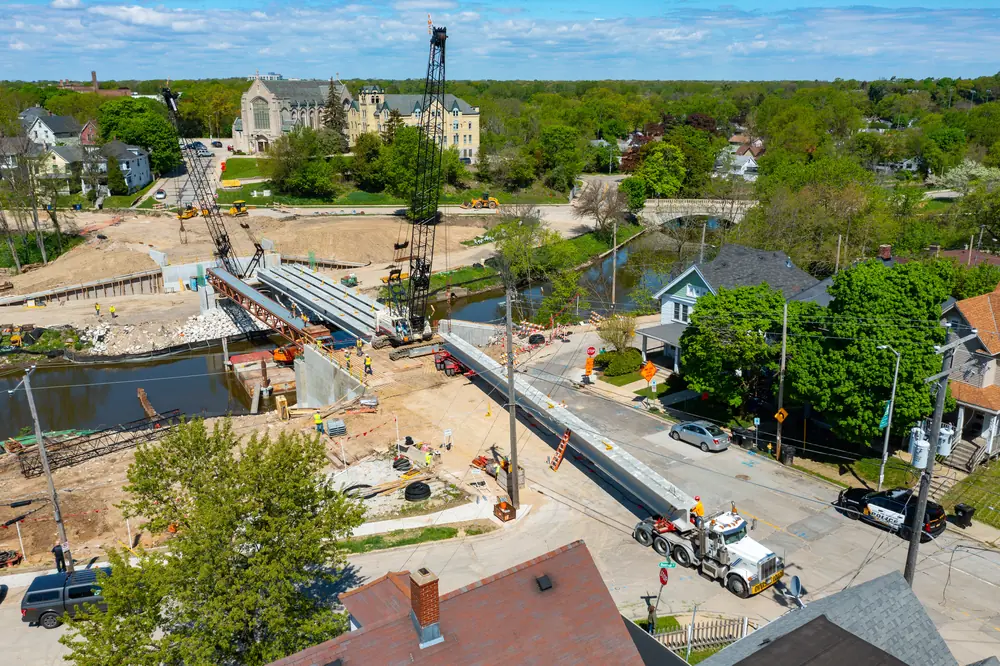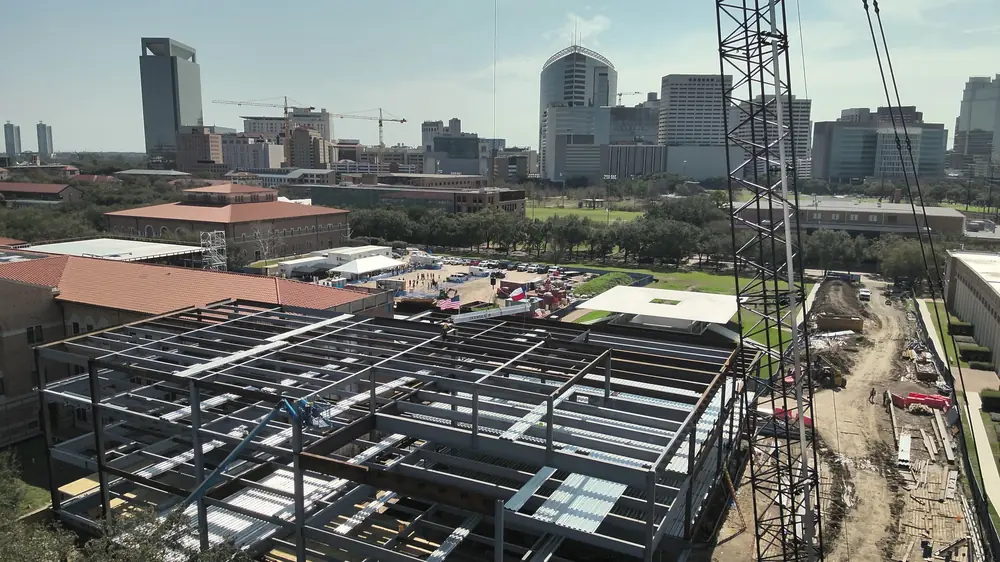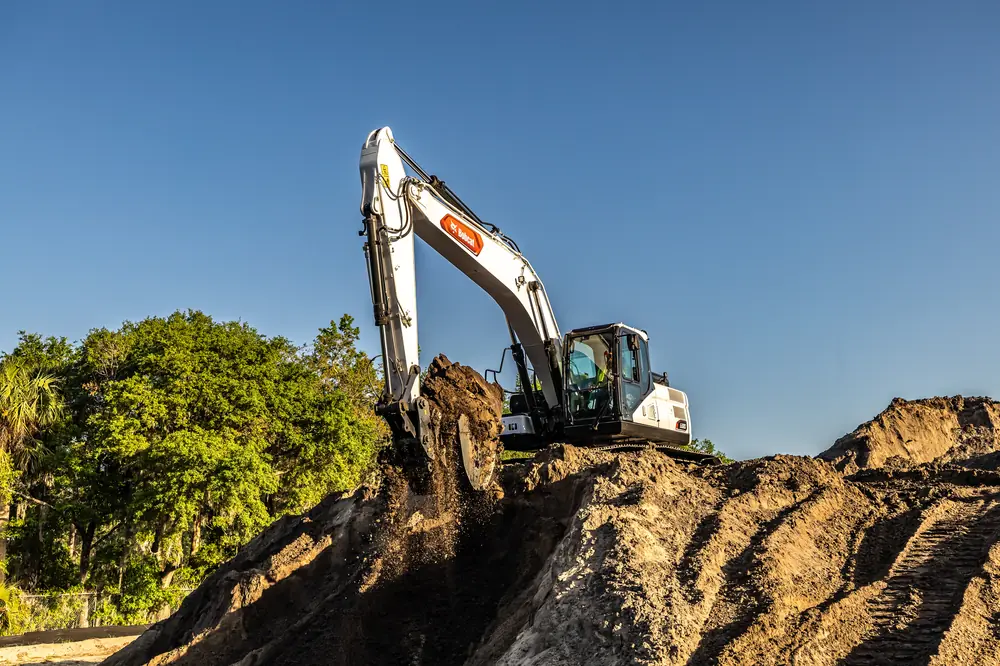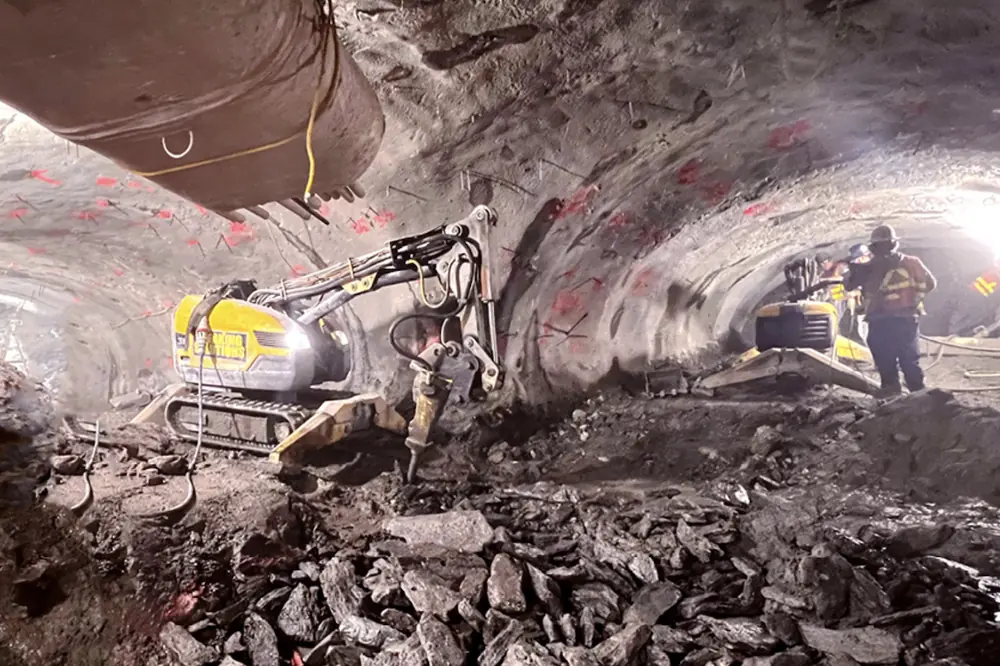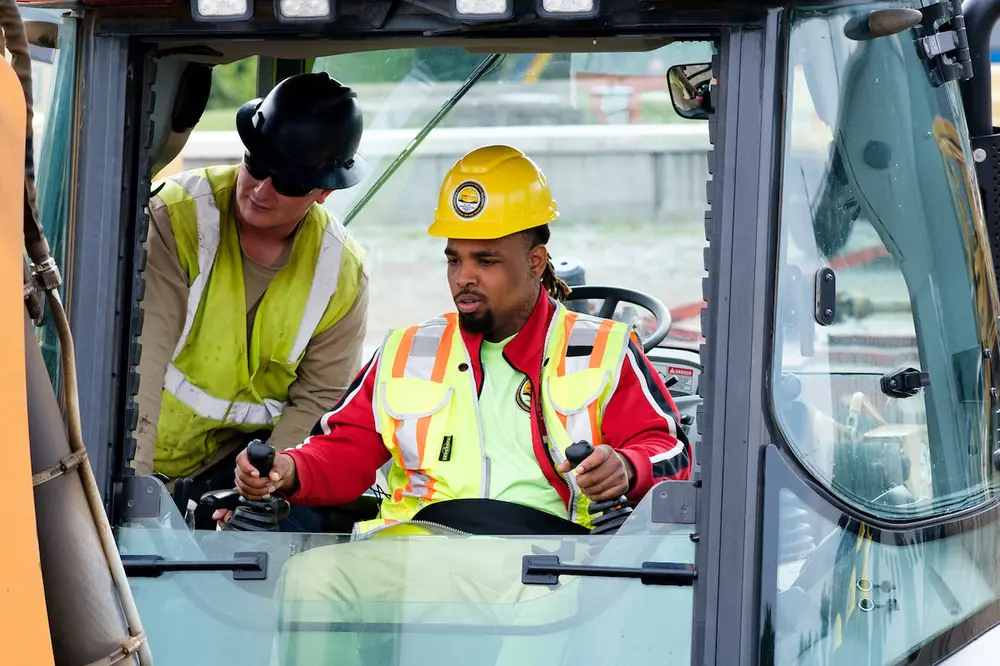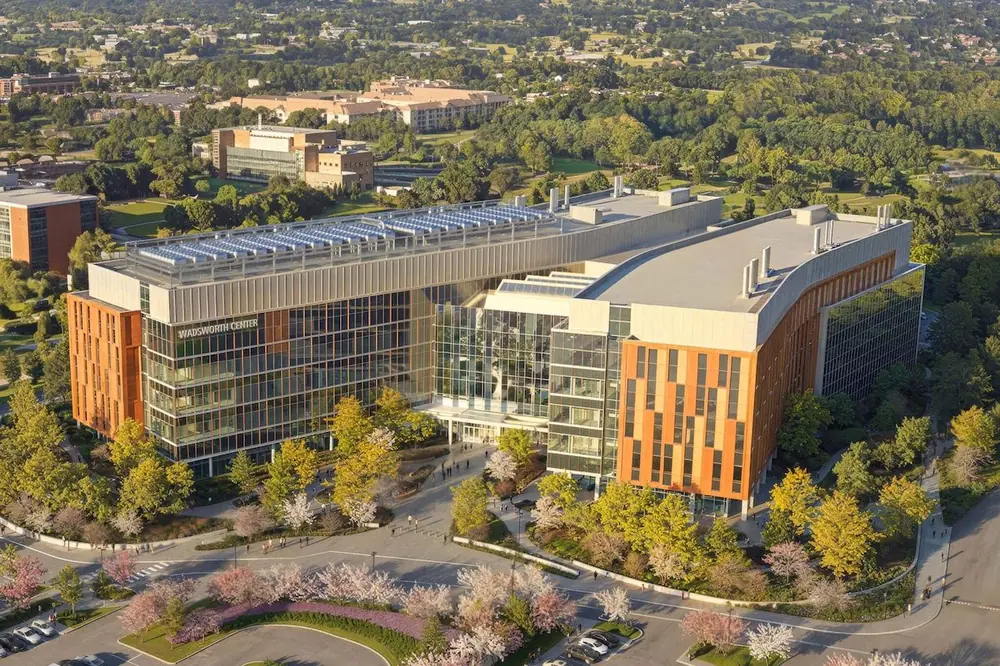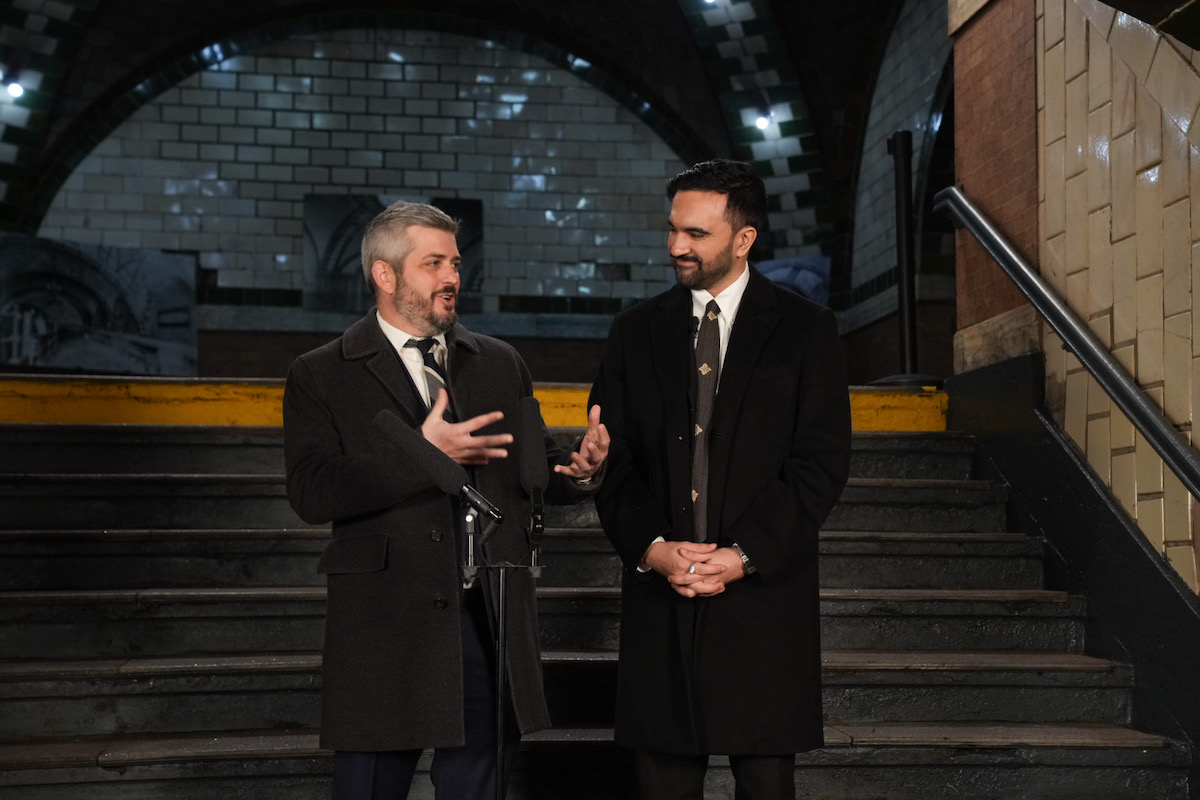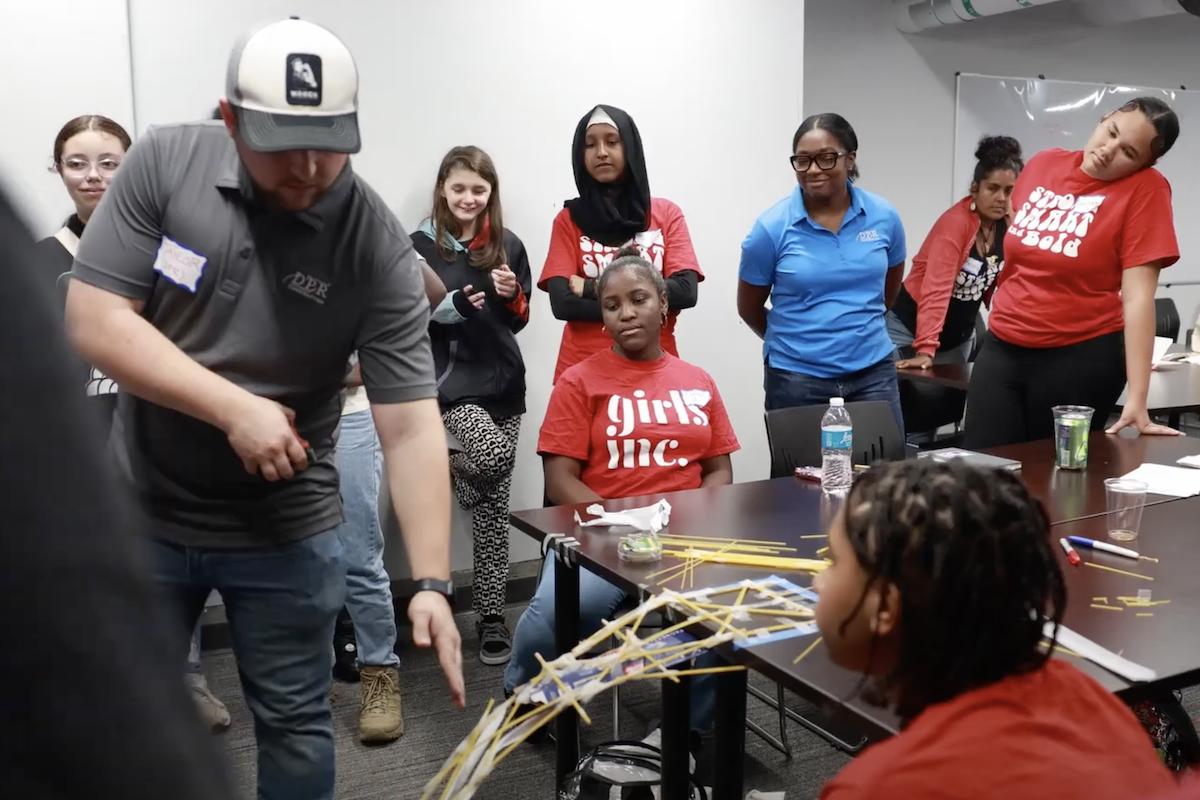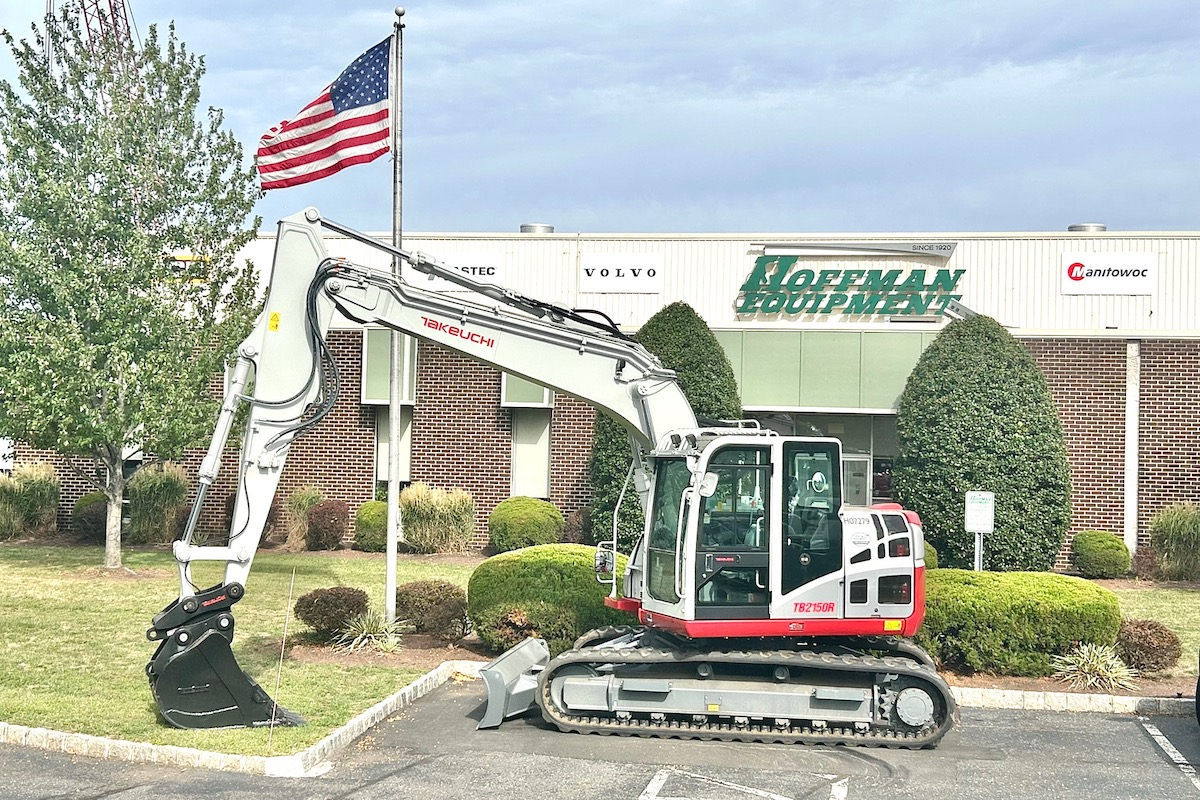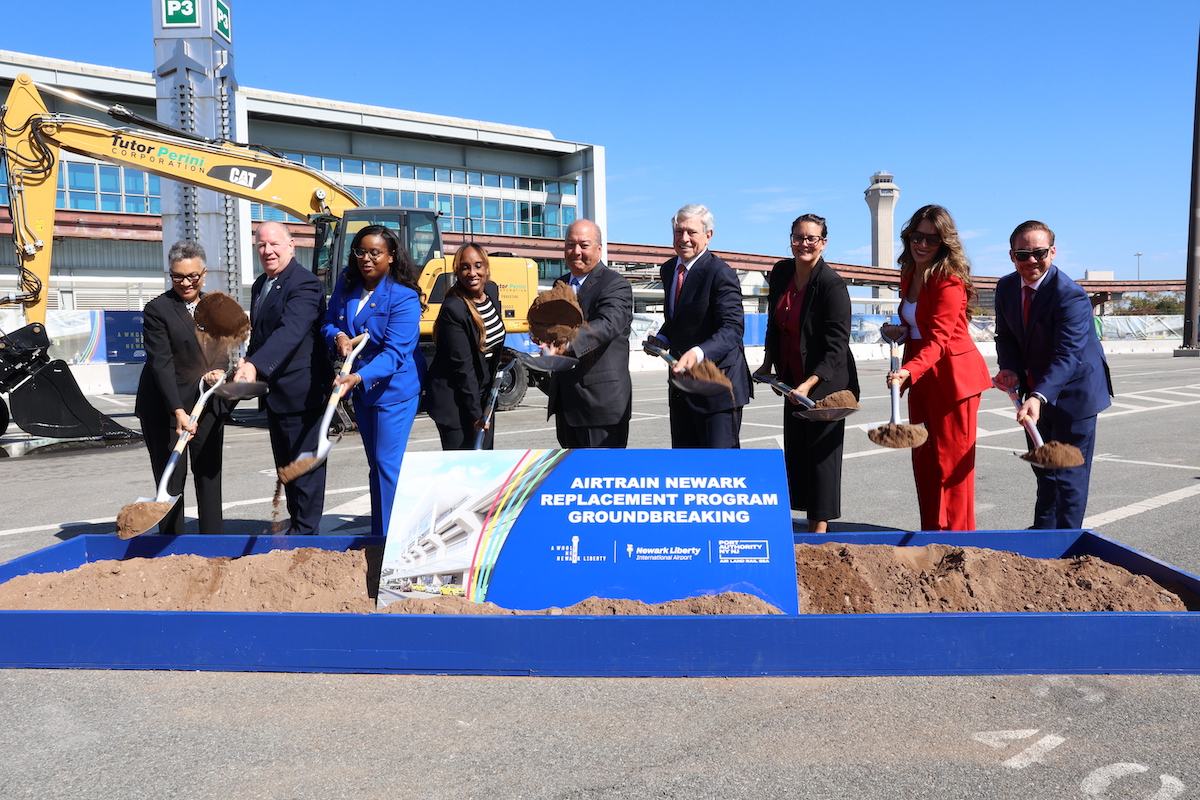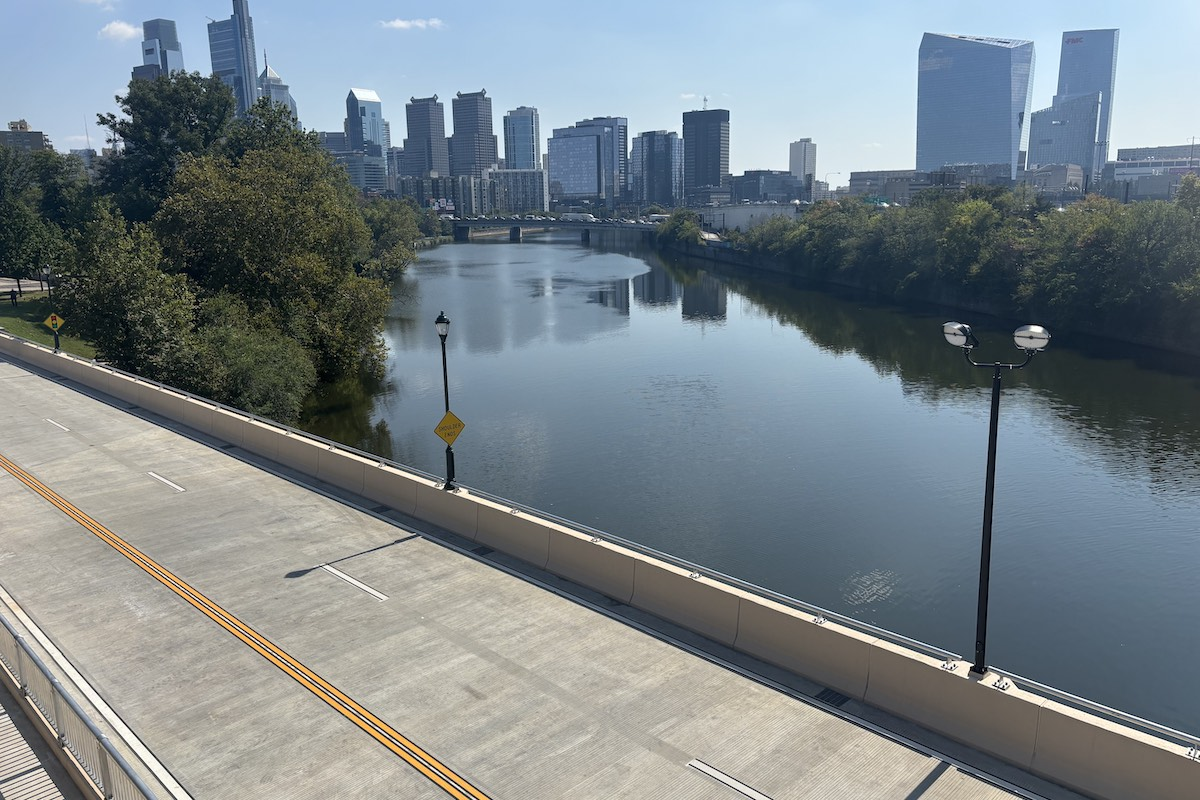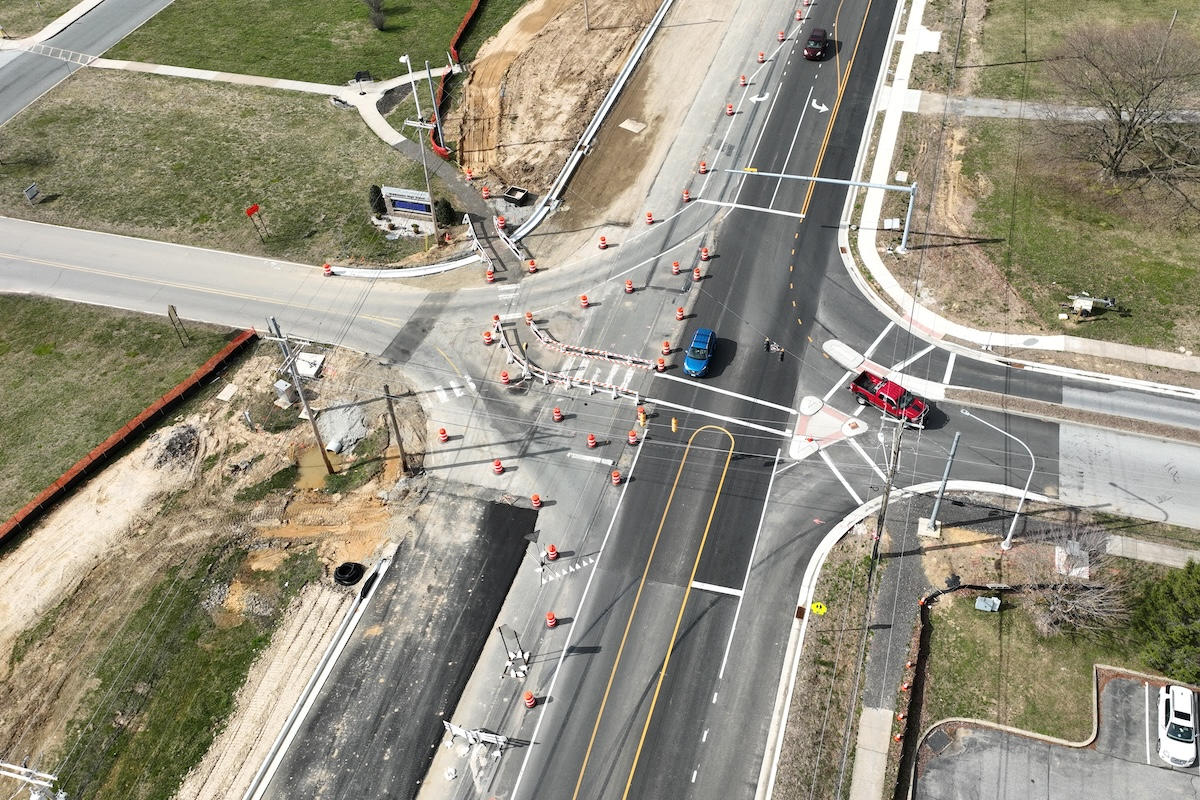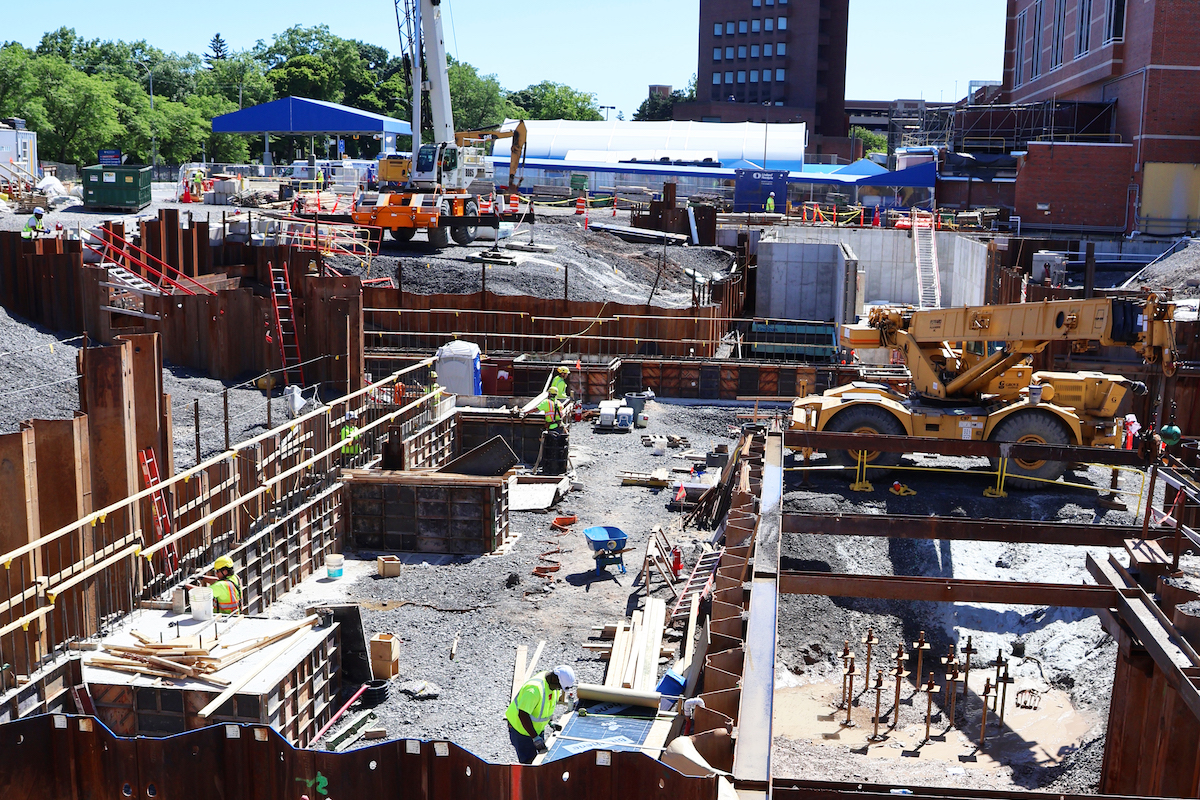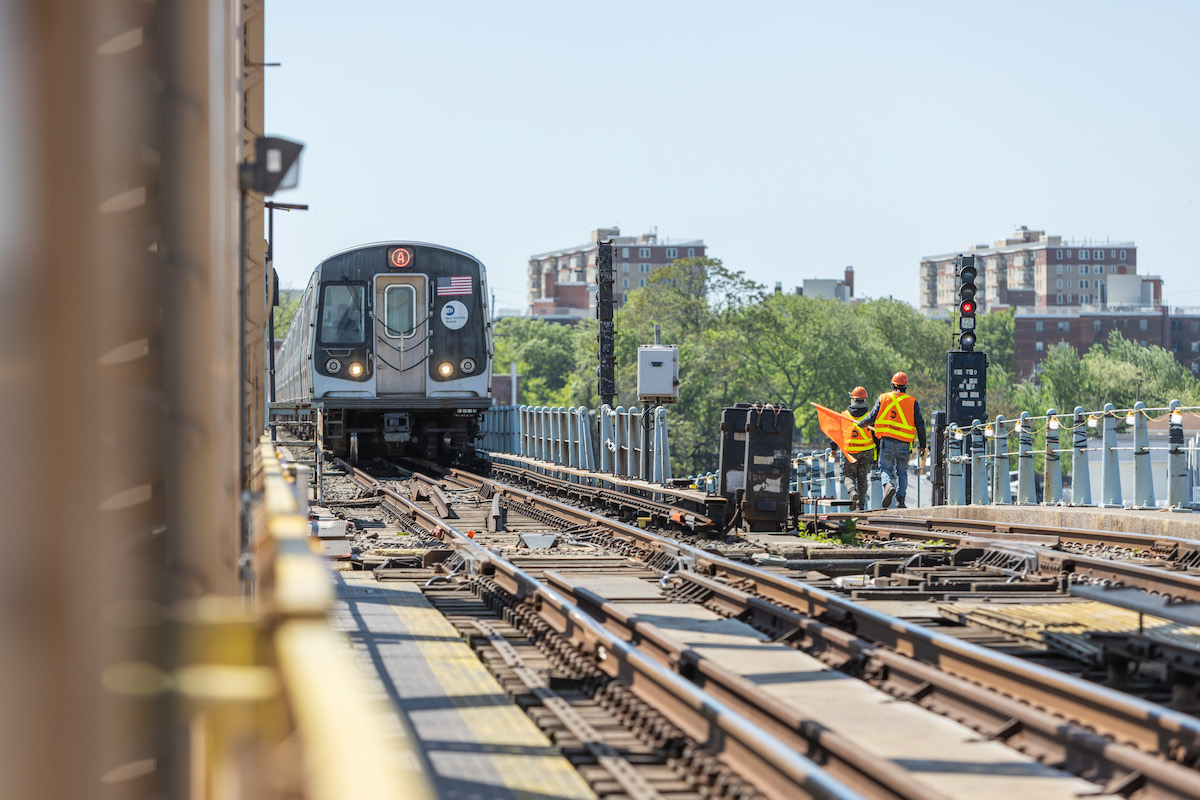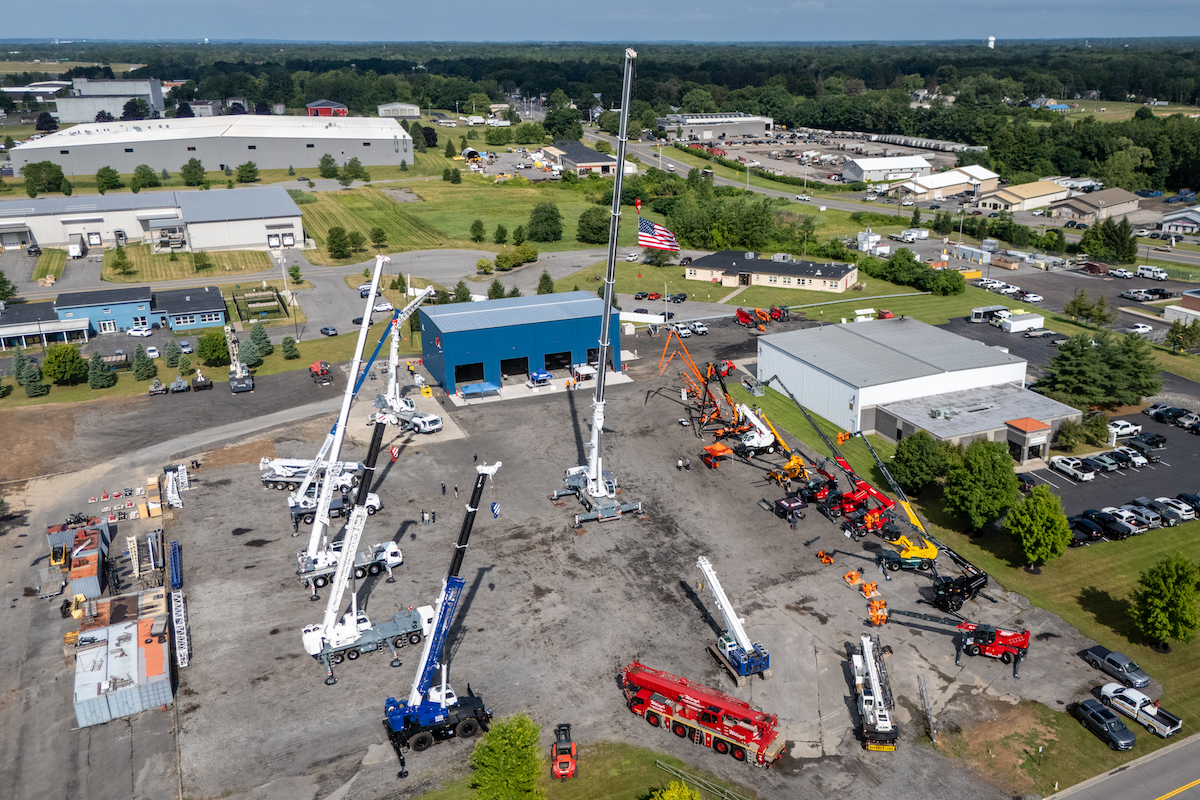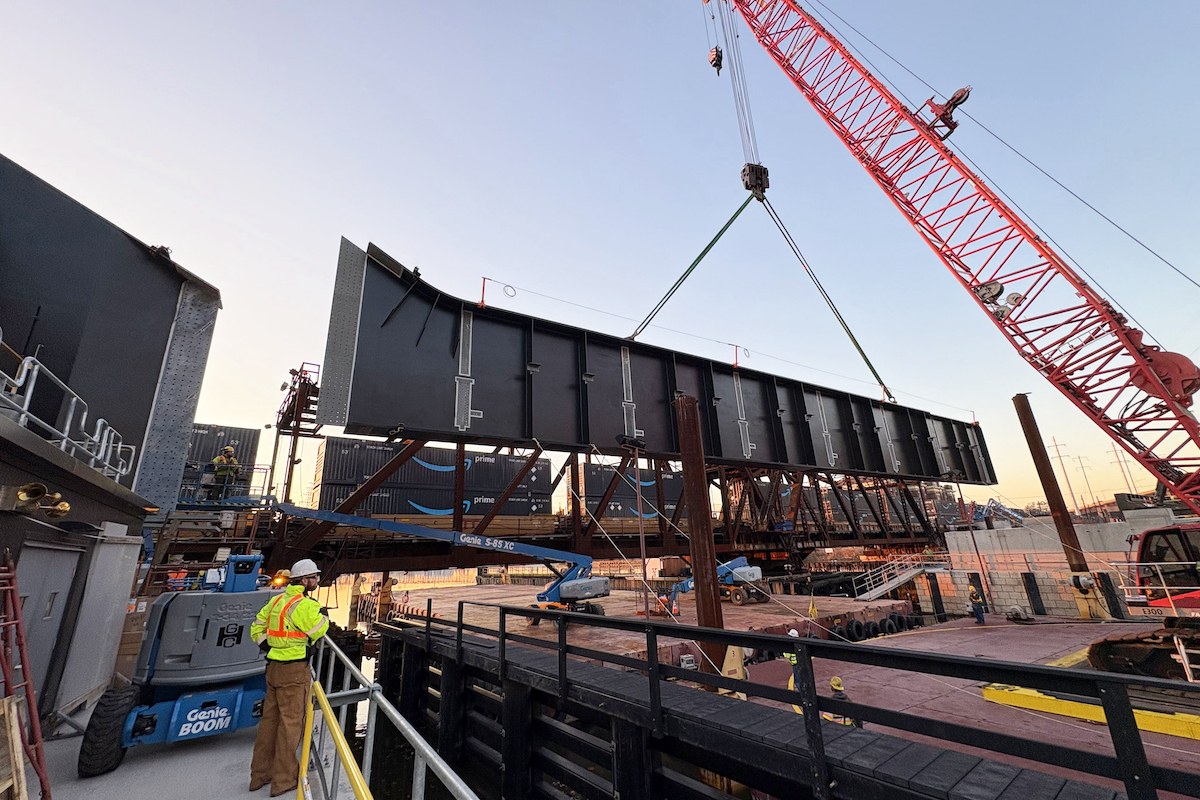But that’s not the only unique aspect of the project. “If you want to get the grand tour of innovations, this project has a little bit of everything,” said Brandon Seiter, P.E., KYTC’s Project Manager. At the first interchange, “If you drive from west to east, you’ll go through a roundabout, then the DCD at the interchange, then a single point urban interchange (SPUI), then a railroad underpass. Pretty much all the unique things you can do as an engineer, we put into one project, all right in a row.”
Those elements are part of the improvements at Richwood Road (KY 338) and Interstate 71/75. To the north of that, crews are also constructing a new DCD at the Mt. Zion Road (KY 536) interchange at I-71/75. The final piece of the project will rehabilitate about six miles of I-75 mainline pavement from Mt. Zion Road south to the Boone/Kenton County line.
With Boone County’s population forecast to double by the year 2050, increasing traffic volumes already led to higher crash rates than the statewide average for similar roadways. This project will enhance safety, increase capacity, reduce delays, and provide better connections to a growing number of area businesses. Throughout construction, complex maintenance-of-traffic phasing keeps workers and drivers safe while maintaining access to those businesses.
Funded by federal, state, and local sources, the entire project is scheduled to finish in late 2022 or early 2023. Because the Mt. Zion Road interchange reconstruction is less complex, Seiter expects that work to reach substantial completion by the end of this year and open earlier than the other portions of the project.

| Your local Trimble Construction Division dealer |
|---|
| SITECH Allegheny |
| SITECH Northeast |
KYTC awarded the design-build contract in late 2019 to the tri-venture comprised of John R. Jurgensen Co. of Cincinnati; Eaton Asphalt Paving of Walton, Kentucky; and Haydon Bridge Company of Springfield, Kentucky. Underground utility work started right away, and construction was in full swing by spring 2020.
During the planning process for improvements, “The project team looked at other options, but one of the benefits of the DCD is that it can be built on a smaller footprint,” Seiter said. “We acquired a little right-of-way for some ramp widening, but it was definitely minimized with the DCD design vs. other types of interchanges. Not having to purchase more right-of-way meant a lower dollar amount to construct. DCDs are also very efficient at getting traffic through, and that combination made it the best option.”
Traffic at the new DCD interchanges will follow curbs, signs, pavement markings, and signals to move briefly over to the left side of the road, making left turns easier. Drivers continuing through the interchange will then cross back to the right side of the road, leading to the “double crossover” name.
By eliminating left turns against oncoming traffic, the DCD configuration reduces crashes. Speeds are also decreased, so if crashes occur, they’re usually less severe. Because there’s no need for a separate left-turn signal phase, DCDs move vehicles through the interchange more efficiently.
Although other countries have used the configuration (also known as a diverging diamond interchange) for decades, the first DCD in the U.S. opened in Missouri in 2009. In 2011, Kentucky’s first DCD opened in Lexington. The two new DCDs in this project will be the state’s fourth and fifth.

| Your local Trimble Construction Division dealer |
|---|
| SITECH Allegheny |
| SITECH Northeast |
The new SPUI will replace the traditional, signalized intersection at Richwood Road and U.S. 25 (Dixie Highway) with separate, grade-separated roadways. That will allow freer movement along Richwood Road, which will pass under a new bridge for U.S. 25.
Immediately after that intersection, Richwood Road originally included two at-grade railroad crossings, which will move to a new bridge.
“All of that will be grade-separated so you can drive under U.S. 25 and the railroad without being impeded,” Seiter said.
On the other side of the interchange, a roundabout at the intersection of Richwood Road and Triple Crown Boulevard will keep traffic moving at safer speeds.
In addition, “We’re adding more capacity to get vehicles through the interchanges as efficiently as possible,” Seiter said. “That includes widening and adding extra lanes on the ramps.”

| Your local Trimble Construction Division dealer |
|---|
| SITECH Allegheny |
| SITECH Northeast |
Richwood Road will expand to seven lanes in some spots to allow for dedicated turn lanes. Mt. Zion Road will widen from three lanes to as many as nine, with new through lanes and turn lanes. New service roads will provide better access to local businesses.
“For the most part, the Mt. Zion Road widening ties into adjacent corridor projects,” Seiter said. “We just completed one to the west, and we have a project on the east side of the interchange that we hope will start construction as early as this fall.”
Work around both interchanges also includes new shared-use paths and sidewalks.
Despite the challenges, “It’s been quite impressive to see all parties adapt very quickly and become more efficient,” Seiter said. “People used to have to drive to in-person progress meetings, and we’ve been able to streamline and make them virtual so it saves everybody some time. I think in a lot of ways it’s made project administration as agile as it’s ever been.”
That agility helps with the project’s complex phasing. “When you work in an area that has heavy residential traffic, as well as industrial and commercial traffic, access and maintenance-of-traffic phasing become critical,” Seiter said. “Both of these interchanges have a lot of that. Intricate maintenance-of-traffic phasing makes sure the contractor has room to do the work, and that we’re doing it as safely as possible while allowing people to get where they need to go.”

| Your local Trimble Construction Division dealer |
|---|
| SITECH Allegheny |
| SITECH Northeast |
In addition to coordinating lane closures and lanes shifts, the team worked extensively with Norfolk Southern on the new railroad overpass.
“Any time you’re coordinating with a third party, it adds some variables to the equation,” Seiter said. “We have a railroad flagger to make sure no work goes on around the track when trains are coming, and there’s all the coordination of getting plans and procedures approved, as well as scheduling the work Norfolk Southern will do.”
Due to the complicated coordination, the project experienced some delays. However, the majority of work remains on schedule and Seiter said they’re looking at ways to catch back up on the delayed portions.
Photos courtesy of Nancy Wood, KYTC District 6







